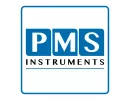
Medical Equipment Testing and Calibration

Save time and send the same quote information to more than one company.
To add companies click the 'ADD TO QUOTE LIST' buttons.
-
Tel: 01628 773233
PMS Instruments
At the heart of healthcare technology

-
Tel: 01685 846666
Williams Medical
Long established medical supplies company

-
Tel: 0333 005 0486
JPen Medical
Specialists in healthcare equipment test and calibration

Quick Guide to Medical Equipment Testing and Calibration
Does the law say I must test and calibrate my medical equipment?
No, the law does not specifically require the testing and calibration of medical equipment. But there are a number of pieces of Health and Safety legislation that require an owner of medical equipment to keep it in safe and good working order. The Medicines and Healthcare Products Regulatory Agency (MHRA) requires a "device management procedure to ensure that risks associated with the use of medical devices [are] minimised".
Can I fail CQC if I don't have my equipment calibrated?
Yes. One of the reasons that some practices failed to meet the CQC standards was a "lack of any record that essential equipment (such as blood pressure monitors) had been calibrated or serviced".
What equipment needs calibrating and how regularly?
Here is a list of the most commonly calibrated items:
- Body Fat Monitor
- BP Monitor
- Cautery
- Centrifuge
- CO Meter (Smokerlyser)
- Defibrillator
- Doppler
- Ear Syringe
- ECG
- Fridge
- Height Measure
- Hyfrecator
- Nebuliser
- Otoscope/Auroscope
- Oxygen Regulator
- Pulse Oximeter
- Scales
- Spirometer
- Suction Pump / Aspirator
- TENS machines
- Thermometer
- Ultrasonic Cleaner
- Vision Screener
The simplest, though costly, approach is to have everything tested and calibrated annually. Another approach is to decide what needs calibrating by carrying out a risk assessment: ask yourself what the consequences would be of a piece of equipment failing, and then decide which are higher and lower risk items. High-risk items of equipment must be calibrated regularly and low-risk items less often.
Higher-risk items should be calibrated at least once a year. If you decide to calibrate lower-risk items less frequently, check with a calibration provider if they agree with your view and include a copy of your risk assessment, justifying your calibration decisions.
How do I choose a supplier?
There are many companies to choose from. Here are a few tips:
- Standards: Is the provider ISO9001 accredited? Does the supplier have any accreditation from the National Physical Laboratory?
- Qualifications: What qualifications do the engineers have? Are they trained by manufacturers as well as independent third parties?
- References: Can the provider supply references from recent work?
- Safety: Are engineers DBS (formerly CRB) checked?
Does your practice still have mercury sphygs to dispose of?
Following CQC reports about mercury, many practices have had them taken away and disposed of. If you intend to keep mercury on site (even if stored), ensure you have an ‘in date’ mercury spill kit available, and inform all of your staff of its location.



